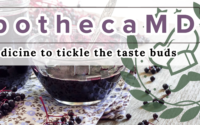Protective Effects of Zingerone Against Depression-Like Behavior and Biochemical Changes in Chronic Stressed Rats: Antioxidant Effects
J Med Food. 2022 May 30. doi: 10.1089/jmf.2021.K.0141. Online ahead of print.
ABSTRACT
Ginger contains zingerone, an active constituent possessing antioxidant and neuroprotective properties. The present study was designed to explore the efficacy of the bioactive compound, zingerone, for treating behavioral and biochemical alterations in rats exposed to chronic restraint stress (CRS). Female Wistar rats were administered zingerone (25, 50, and 100 mg/kg p.o.) once daily for a period of 28 days while being exposed to CRS (6 h/day). Our results indicated that the stressed animals depicted depression-like behavior (reduced sucrose preference and increased immobility time) associated with increased lipid peroxidation (LPO) (cortex), decreased catalase (CAT) (hippocampus and cortex), and increased superoxide dismutase (SOD) (hippocampus and cortex). In addition, metabolic alterations were characterized by hyperglycemia and increased glycosylated hemoglobin in the CRS rats. However, no alterations were observed for learning and memory and in the levels of reduced glutathione. Repeated zingerone administration significantly reversed depression-like behavior elicited by CRS in rats. Furthermore, a significant antioxidant effect was exhibited by zingerone, as shown by decreased LPO and enhanced activity of SOD and CAT in chronically stressed rats. The findings of our study demonstrated that zingerone possesses protective actions against chronic stress-induced depressive-like behavioral, biochemical, and metabolic alterations and that its underlying mechanism may be attributed to its antioxidant properties. The results also signify its pharmacological and possible nutritional importance.
PMID:35639359 | DOI:10.1089/jmf.2021.K.0141

